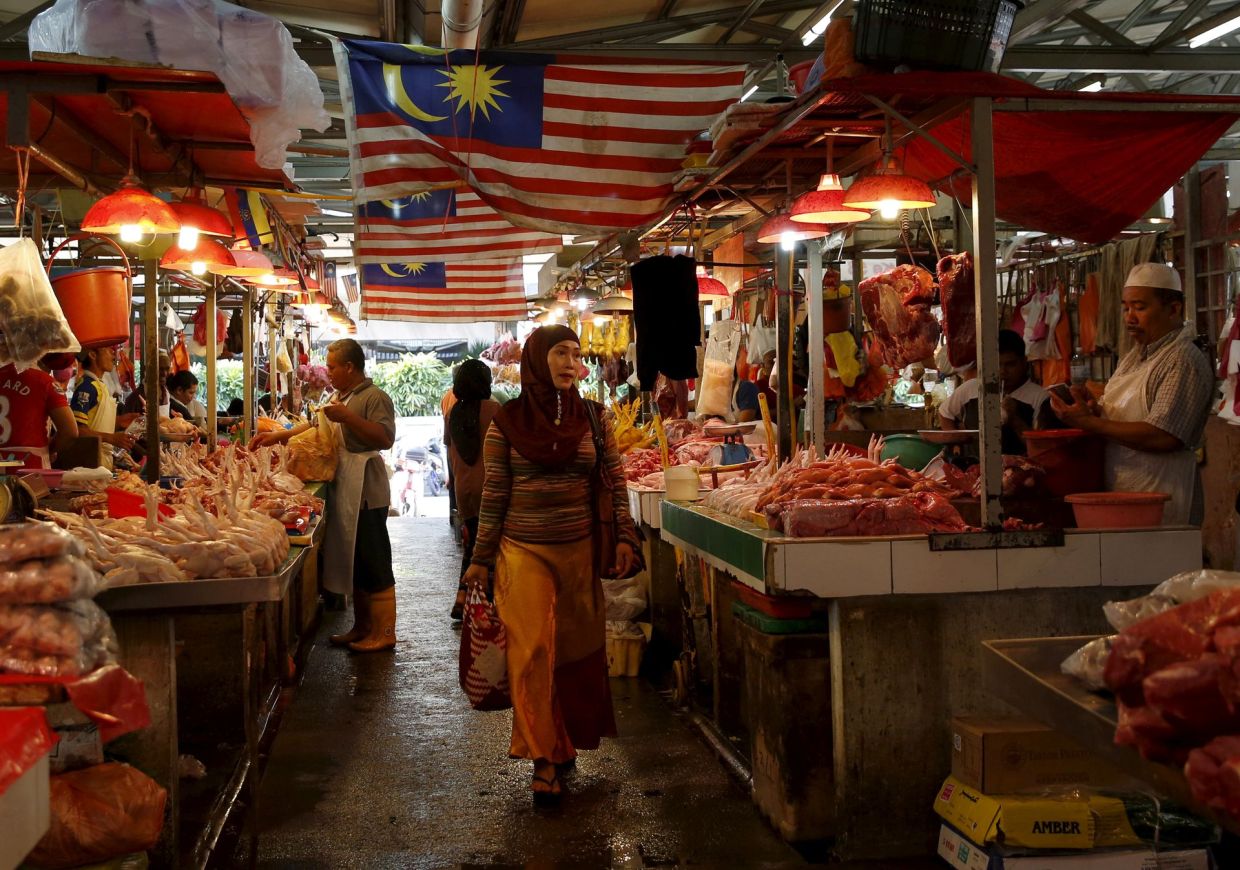Malaysia: Inflation eases to 3.7% in January
PETALING JAYA: While inflation appears to remain sticky in many countries, Malaysia’s headline inflation in January fell for the fifth straight month to 3.7% year-on-year (y-o-y), amid the implementation of the Festive Season Maximum Price Scheme for the Chinese New Year starting from Jan 15 to Jan 29.
The weaker figure, economists think, will allow Bank Negara the room to hold its policy rate steady for a few more months at least and keep it focus on economic growth.
Although the inflation reading marked the lowest since June 2022, key areas that led the price gains were restaurants and hotels (6.8%), food and non-alcoholic beverages (6.7%) and transport (4%).
The increase in the consumer price index (CPI) was in line with the median forecast of economists polled by Reuters.
Slower increase
Core inflation, which measures changes in the prices of goods and services without considering the volatile prices of fresh food as well as administered prices of goods by the government, registered a slower increase of 3.9% y-o-y.
UOB Research expects Malaysia’s inflation to average 2.8% in 2023 but noted inflation outturn is dependent on potential policy changes on subsidies.
“Our inflation forecast has yet to impute any potential changes in domestic policy related to price-administered items particularly fuels, utilities and staple food product (for example, chicken, eggs and cooking oil).
“In addition to that, volatile global commodity and non-commodity prices, spillover effects from China’s reopening, and currency movement are also wildcards for our inflation outlook,” the bank stated in a recent report.
It however added given a moderation in global commodity prices and softer domestic growth momentum amid lingering macro headwinds, it expects Bank Negara to extend its interest rate hike pause at the next monetary policy meeting in March.
Central bank rate hike
“The current global and domestic economic developments continue to support our view that Bank Negara will resume its policy rate hike by 25 basis points in May and maintain rates at 3% for the rest of the year,” the bank stated.
Prime Minister and Finance Minister Datuk Seri Anwar Ibrahim on Friday tabled a revised Budget 2023 on Friday which continued to support consumption and sustained many of the subsidies in place.
Statistics Department chief Datuk Sri Mohd Uzir Mahidin said the food and non-alcoholic beverages group which contributed 29.5% of total CPI weight recorded a slower increase in January as compared to December 2022.
“The increase in this group was mainly attributed by the component of food away from home which moderated to 9.3% as compared to 9.6% in December 2022, while food at home increased 5.1% as compared to the previous month (December 2022: 4.9%),” said Mohd Uzir.
He added all subgroups within the food and non-alcoholic beverages group recorded an increase of 0.7% to 9.1%.
The meat subgroup meanwhile registered an increase of 8.3% as compared with 7.8% in December 2022.
Chicken as the largest component in the subgroup (46.1%), increased to 6.5% as against 5.8% in the previous month.
In the transport group, inflation registered a slower increase of 4% in January as compared to 4.9% in December 2022, due to the lower increase in the average price of unleaded petrol RON97.
“On a y-o-y basis, the average price of unleaded petrol RON97 eased to 9.5% (RM3.35 per litre) as compared to 20% recorded in December 2022 (RM3.60 per litre).
“The moderate increase in fuel prices was a direct impact of the decrease in the price of Brent crude oil (minus 2.9%) to US$83.09 (RM368.55) per barrel in January 2023,” said Mohd Uzir in a statement.
Potential to rise
Malaysia’s inflation rate could rise in the months ahead as the Agriculture and Food Security Minister Datuk Seri Mohamad Sabu had said the prices of chicken and eggs are expected to be floated after June.
The government is also expected to review the electricity tariffs for households and small businesses at the end of June.
The long-awaited decision on switching to targeted fuel subsidies from the existing blanket approach is also said to be announced by the government soon.
“With regard to the fuel subsidy, under a potential scenario of gradual fuel price hikes every quarter based on global crude oil price assumptions of US$80 to US$90 (RM355-RM399) per barrel, it (the direct impact) could lift headline inflation to 4% in 2023.
In another scenario of assuming that fuel prices are unchanged in the first half of 2023 (1H23) and then gradually raised in 2H23, headline inflation could be capped at 3.5%,” UOB Research noted.
Source: https://www.thestar.com.my/business/business-news/2023/02/27/inflation-eases-to-37-in-january


 English
English




